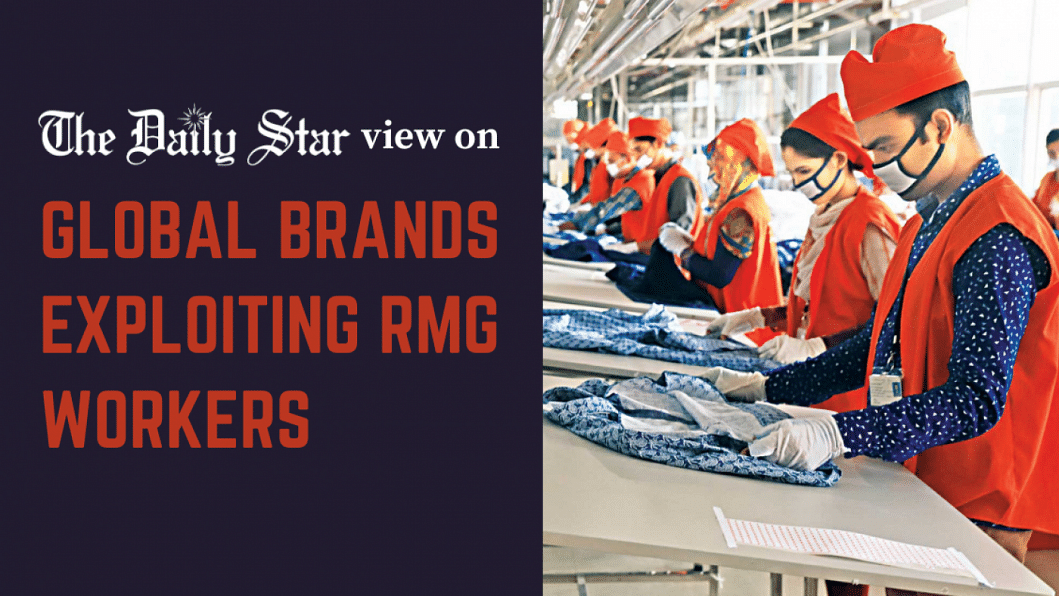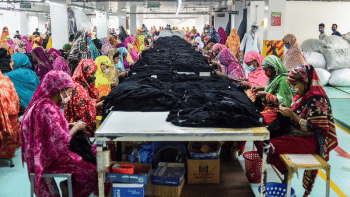Exploitation is built into the global RMG industry

In the global imagination, Bangladeshi RMG factories are the hotbeds of worker exploitation. However, while there are justifiable criticisms of the apparel industry, which has systematically failed to address workers' rights violations and ensure dignified wages, what is often overlooked in international discourses is the complicity of the global brands in enabling such terrible conditions.
A recent survey of 1,000 Bangladeshi factories making garments for global brands highlights that more than half of the factories were subjected to order cancellations, refusal to pay, price reductions or delayed payment for goods during the pandemic. This resulted in massive job losses, lower wages for workers, and high staff turnover, with one in five factories reporting they could not even pay the legal minimum wage as a result. At the height of the pandemic, when no alternative employment opportunities were available, over 26 percent of the total workforce were simply left to fend for themselves – or rather, starve to death – without so much as payment of due benefits.
The study shows that many big brands, including H&M, Inditex, Primark, C&A, Gap, and Walmart, engaged in such dubious practices. The bigger their influence, the more likely they were to pressurise suppliers to accept unfair terms. Of the 78 brands buying from four or more factories, 90 percent were reported as engaging in unfair practices, with 86 percent cancelling orders, 85 percent reducing the price arbitrarily, 50 percent refusing to pay for goods already in transit/production, and 85 percent delaying payment for goods already dispatched for more than three months. Seventy-two percent of brands with 15 or more suppliers were reportedly purchasing from factories at below the cost of production, while 96 percent were reported as purchasing from factories struggling to pay the minimum wage.
Even more alarmingly, the brands did not stop these practices once the factories reopened after lockdown, and continued to pressurise suppliers for reduction of prices, despite the increase in cost of raw materials and Covid-19 mitigation measures. With suppliers consistently failing to negotiate fair terms with retailers, the burden of increased costs was inevitably pushed on to the workers, who were forced to work long hours under tremendous pressure, often without pay, to meet unrealistic targets.
It is unacceptable that global brands would be allowed to simply get away with such unfair practices, in the absence of any mechanism to hold them accountable. Attempts to regulate the global supply chain have thus far been met with little success, with retailers severely pushing back on any sort of binding agreements. The US and EU, which house most of these big brands, have not taken concrete steps to hold non-compliant retailers accountable, even though they regularly criticise and pressurise supplier nations to adhere to labour rights. Suppliers and supplier countries, on the other hand, are afraid to raise their concerns in case they lose orders.
We, therefore, need a global regulatory framework that prioritises the interests of the RMG workers. We urge all stakeholders to find a workable solution to this long-standing problem.

 For all latest news, follow The Daily Star's Google News channel.
For all latest news, follow The Daily Star's Google News channel. 







Comments